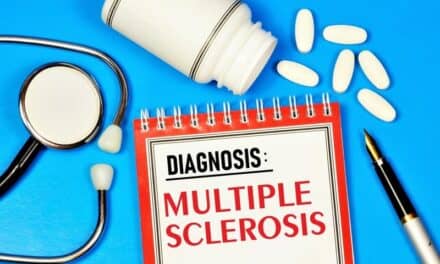Even when differences in socioeconomic status are taken into consideration, Black people with multiple sclerosis (MS) may be more negatively impacted by the disease than white people with MS, according to a study published in Neurology.
Black people with MS had lower scores on certain measures of neurological health, like dexterity and walking tests and showed more evidence of disease progression on brain scans, researchers suggest.
“While lower socioeconomic status appears to be linked to doing worse on tests of neurologic performance in white people with MS, we do not see that for Black people with MS, at least at the single time point we examined.”
— study author Lana Zhovtis Ryerson, MD, of NYU Langone Health in New York City, and a member of the American Academy of Neurology
Compared Blacks and Whites
The study looked at 1,214 people who identified as Black and 7,530 people who identified as white. Researchers also took a more detailed look at socioeconomic status based on neighborhood for 288 of the Black people in the study and 1,046 of the white people.
Researchers also looked at common neurological tests for people with MS. In a 50-question cognitive processing test, the Black people with MS, on average, scored five points lower than white people with MS. For physical tests like the 25-foot walking test, Black people with MS were an average of 0.66 seconds slower. In a manual dexterity test, Black people with MS were an average of 2.11 seconds slower.
When looking at brain lesions, which can indicate disease progression, researchers found that Black people had, on average, larger lesion volumes on their brain scans compared to white people.
Researchers then looked at the smaller group of people, using a more detailed measure of socioeconomic status. For white people with MS, lower household income was associated with slower cognitive processing and walking speeds, while a worse score on the socioeconomic test was associated with slower cognitive processing and manual dexterity speeds.
For Black people in the study, lower income was only associated with less manual dexterity. Having worse socioeconomic scores was not associated with differences in cognitive processing, walking or manual dexterity speeds, a media release from American Academy of Neurology explains.
“Future studies should consider the role of unmeasured factors like systemic racism to see if they may play a role in greater disability among Black people with MS. These results also reinforce the need for more diverse clinical trials and research focusing on treatment strategies specifically for Black people to identify whether certain therapies or more aggressive early treatment could help slow down disability over time.”
— Lana Zhovtis Ryerson, MD
A limitation of the study is that it was based on one point in time and may not reflect associations over time, per the release.
[Source(s): American Academy of Neurology, EurekAlert]
Related Content:
Multiple Sclerosis and Occupational Therapy: How it Works
MedRhythms and Massachusetts General Hospital Launch Study of Gait Asset for Multiple Sclerosis
Pack Health Partners with National Multiple Sclerosis Society to Support Patients with MS





